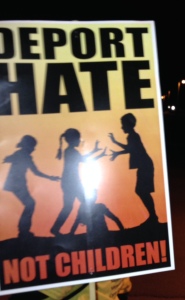We need your help.
Last Monday, Hillel International threatened legal action against Swarthmore College. Why? Because Jewish students wanted to bring Jewish Civil Rights Veterans to speak in Swarthmore Hillel.
Hillel International’s actions are shocking, unethical, and counter to their mission of supporting Jewish life on campus. We need to let them know that suing students is unacceptable.
Call Hillel International CEO Eric Fingerhut and tell him — don’t sue your students!
Students at Swarthmore Hillel have spent the past year carefully crafting programming on Israel-Palestine that is inclusive, engaging, and intellectually rigorous. They’re bringing in a variety of speakers to discuss Israel-Palestine, including Jewish Civil Rights heroes Dorothy Zellner, Ira Grupper, Larry Rubin, and Mark Levy. Yet rather than supporting these student-initiated endeavors to discuss racism and social justice, Hillel International is trying to censor them — through the basest means possible.



